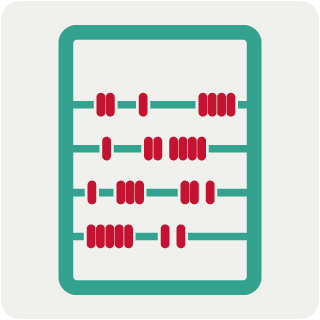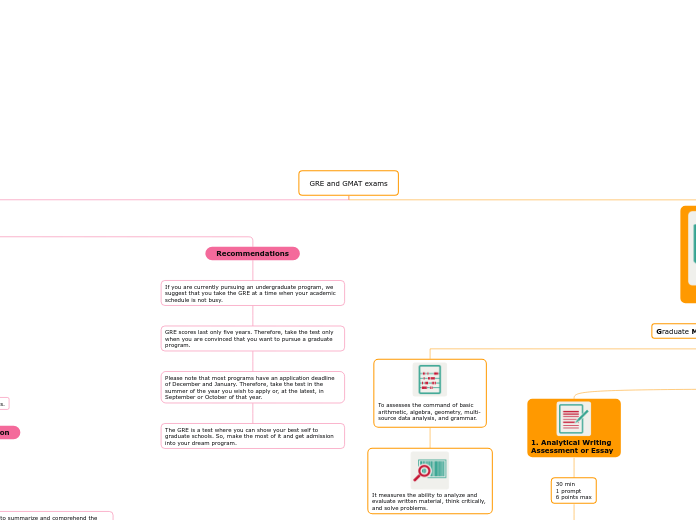GRE and GMAT exams
GRE

It is a standardized test that is administered both on a computer and on paper. GRE scores are required for admission to graduate and graduate business programs
The GRE can be taken at any of test centers in 160 countries. Students who wish to take the computer-based GRE may do so throughout the year. In countries like mainland China, Taiwan, Hong Kong, and Korea, the computer-based GRE is available three times a month.

In countries where the paper version is available, students can take the test twice a year, that is, in November and February.
The first section of the GRE is the Analytical Writing section.
Present Complex Ideas Clearly
Support Ideas with Reasons and Examples
Examine Claims and Evidence.
Bring About a Relevant and Coherent Discussion
Control the Standard Written English Elements.
The Verbal reasoning section
Draw conclusions from discourse
Analyze incomplete data
Select important points to summarize and comprehend the structure of the test.
The third section is the quantitative reasoning
Algebra
Geometry
Arithmetic
Data Analysis
Recommendations
If you are currently pursuing an undergraduate program, we suggest that you take the GRE at a time when your academic schedule is not busy.
GRE scores last only five years. Therefore, take the test only when you are convinced that you want to pursue a graduate program.
Please note that most programs have an application deadline of December and January. Therefore, take the test in the summer of the year you wish to apply or, at the latest, in September or October of that year.
The GRE is a test where you can show your best self to graduate schools. So, make the most of it and get admission into your dream program.

GMAT Exam
Graduate Management Admission Test


It measures the ability to analyze and evaluate written material, think critically, and solve problems.
The content on the GMAT is broken down into four scored test sections:

1. Analytical Writing Assessment or Essay
30 min
1 prompt
6 points max
Critiquing the author's argument, analyzing the author's evidence and reasoning.
1. To clearly identify and analyze parts of the argument.
2. To develop and organize their ideas thoughtfully and logically.
3. To connect their statements with clear transitions.

2. Integrated Reasoning
30 min
12 prompt
8 points max
Types of questions
a. Multi-Source Reasoning-Measures
b. Table Analysis-Measures
c. Graphics Interpretation-Measures
d. Two-Part Analysis-Measures
The Integrated Reasoning section tests the ability to:
1. Synthesize information presented in graphics, text, and numbers
2. Evaluate relevant information from different sources.
3. Organize information to see relationships and solve problems.
4. Combine and manipulate information to solve complex problems.

3. Quantitative
62 min
31 prompt
51 points max
To measure the ability to reason mathematically, solve quantitative problems, and interpret graphic data.
There are two types of questions
Problem Solving
To use logic and analytical reasoning to solve quantitative problems and to indicate the best of five answer choices
Data Sufficiency
To recognize which data is relevant, and determine what point there are data to solve the problem.

4.Verbal
65 min
36 prompt
51 points max
Three types of questions
a. Reading Comprehension measures
b. Critical Reasoning assesses
c. Sentence Correction measures
